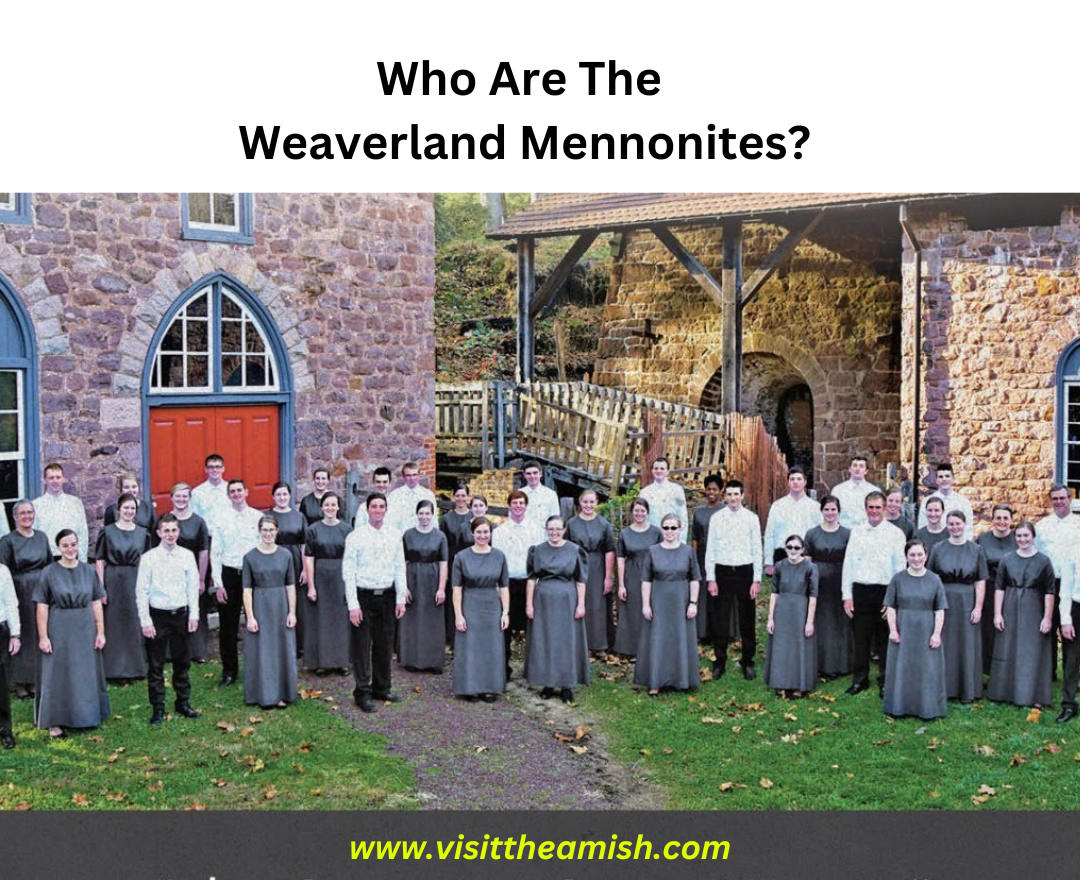As a curious traveler, I’ve always been fascinated by the Amish communities and their way of life. So, when I heard about the Amish communities in Michigan, I couldn’t resist the opportunity to visit and experience their way of life first-hand. From the rolling hills of Jackson County to the fertile farmland of Calhoun County, I was amazed by the beauty of the Michigan countryside and the charm of the Amish communities that call it home.
There are several Amish communities in Michigan, including:
Clare
The Amish community of Clare, Michigan is a fascinating glimpse into a world that is often unknown to many outsiders. Located in the heart of rural Michigan, the Amish have been living in Clare since the mid 1800s, and their presence is still strong today.
The Amish are a religious group that practice a simple, traditional lifestyle that includes plain dress, horse-drawn buggies, and a non-technological lifestyle. The Amish of Clare are particularly unique, as their practices differ slightly from those in other parts of the country. For instance, the Amish of Clare are known for their hard work ethic and strong family ties.
The Amish of Clare are well-known for their unique craftsmanship, including furniture building and quilt making. Amish furniture is highly sought after for its high quality and beautiful designs. The Amish also produce many of their own food items, such as jams, jellies, and baked goods. Much of the Amish produce is sold at the local farmer’s market in Clare.
The Amish of Clare are known for their strong sense of community. They often come together to help each other out in times of need and their strong faith is evident in their daily lives. Many of the Amish in Clare also attend local churches and actively participate in the community.
The Amish of Clare are a wonderful example of a traditional, rural lifestyle. Their presence in Clare has been a boon to the local economy and has kept many of the traditional customs alive. If you’re ever in the Clare area, take a moment to appreciate the unique Amish culture and to learn more about their fascinating way of life.
There are several Amish-themed attractions and activities that visitors can enjoy while in the area. Some of the most popular Amish attractions in Clare, Michigan include:

This Amish bakery serves the freshest bread and sweets imaginable.
- Amish Tours – Visitors can take a guided tour of the Amish countryside, learn about the Amish way of life, and see the Amish families at work and play.
- Amish Farms – Many Amish families in Clare, Michigan own and operate small farms, and visitors can stop by to see the farms in action and purchase locally grown produce, baked goods, and handmade crafts.
- Amish Country Store – Visitors can browse a variety of Amish-made goods, including quilts, baskets, and furniture, as well as local specialty items and souvenirs.
- Horse-Drawn Wagon Rides – Visitors can take a leisurely ride through the Amish countryside in a traditional horse-drawn wagon, taking in the sights and sounds of rural Michigan.
- Amish Restaurants – There are several Amish-style restaurants in Clare, Michigan, offering a unique dining experience with traditional Amish cuisine, such as fried chicken, meatloaf, and homemade pies.
These attractions offer visitors a glimpse into the Amish way of life and the simple, yet rich, culture that the Amish people have maintained for generations. Whether you’re a first-time visitor or a seasoned traveler, there’s always something new and interesting to discover in the Amish communities of Clare, Michigan.
Isabella County:
Isabella County, Michigan is home to one of the largest Amish communities in the state. This thriving rural community has been growing steadily since the first families arrived in the area in the late 1800s. Today, the Amish community in Isabella County is known for its strong cultural heritage, traditional way of life, and its thriving local economy.
The Amish in Isabella County are known for their simple and self-sufficient lifestyle. They live without electricity, modern conveniences, and technology, choosing instead to rely on traditional methods for farming, cooking, and transportation. The Amish are deeply religious and place great emphasis on community, family, and faith. This is reflected in their close-knit communities, where everyone pitches in to help one another and families are central to daily life.
One of the defining characteristics of the Amish in Isabella County is their strong connection to the land. Farming is a central part of the community’s economy, and the rolling hills and fertile fields of the area provide the perfect conditions for growing crops and raising livestock. The Amish use traditional farming methods, including horse-drawn plows and hand-tilled fields, which are not only environmentally friendly but also help to preserve the community’s cultural heritage.
In addition to farming, the Amish in Isabella County are known for their skilled craftsmanship. Many families run small businesses, making and selling handmade furniture, textiles, and other goods. These businesses are an important source of income for the community, and they help to sustain the traditional way of life. Visitors to the area can see the work of local Amish craftsmen by visiting the numerous shops, markets, and stands that dot the countryside.
Another unique aspect of the Amish community in Isabella County is its education system. Amish children attend one-room schoolhouses, typically until the eighth grade, after which they typically enter the workforce. The focus in the Amish school system is on practical skills, such as reading, writing, and arithmetic, as well as religious education. This focus on practical skills and religious values has helped to create a strong, self-sufficient community.
For visitors to Isabella County, there are many opportunities to experience the Amish way of life. One popular activity is to take a horse-drawn buggy tour, which offers a unique and intimate look at the community’s culture and customs. Visitors can also explore local shops and markets, sample traditional Amish cuisine, and learn about the community’s history and heritage at local museums and historical sites.
In conclusion, the Amish community in Isabella County, Michigan, is a vibrant and thriving rural community that has preserved its traditional way of life despite the many changes and challenges of the modern world. Visitors to the area can experience this unique and fascinating culture, learn about its rich heritage, and support the local economy by shopping at local shops and markets. Whether you are a local resident or a visiting tourist, Isabella County offers a truly unforgettable experience.

Hillsdale County:
Hillsdale County, Michigan is home to a small but vibrant Amish community that has been a part of the local landscape for over a century. Despite its small size, the Amish community in Hillsdale County has a rich cultural heritage, a strong connection to the land, and a thriving local economy.
One of the defining characteristics of the Amish in Hillsdale County is their traditional way of life. They live without modern conveniences such as electricity and technology, relying instead on the use of horse-drawn buggies, hand-cranked washing machines, and wood-fired stoves. This way of life reflects the Amish belief in simplicity, self-sufficiency, and a strong connection to the land.
In addition to its simple lifestyle, the Amish in Hillsdale County are known for their close-knit communities and strong sense of community. Neighbors help one another, families are central to daily life, and religious values are emphasized. These values are reflected in the local economy, which is centered around small, family-run businesses such as furniture-making, quilting, and farming.
Farming is a central part of the Amish community in Hillsdale County, and the rolling hills and fertile fields of the area provide the perfect conditions for growing crops and raising livestock. The Amish use traditional farming methods, including horse-drawn plows and hand-tilled fields, which are not only environmentally friendly but also help to preserve the community’s cultural heritage. In addition to farming, the Amish in Hillsdale County are known for their skilled craftsmanship and the quality of their handmade goods.
For visitors to Hillsdale County, there are many opportunities to experience the Amish way of life. One popular activity is to take a horse-drawn buggy tour, which offers a unique and intimate look at the community’s culture and customs. Visitors can also explore local shops and markets, sample traditional Amish cuisine, and learn about the community’s history and heritage at local museums and historical sites.
Another unique aspect of the Amish community in Hillsdale County is its education system. Amish children attend one-room schoolhouses, typically until the eighth grade, after which they typically enter the workforce. The focus in the Amish school system is on practical skills, such as reading, writing, and arithmetic, as well as religious education. This focus on practical skills and religious values has helped to create a strong, self-sufficient community.
In conclusion, the Amish community in Hillsdale County, Michigan is a small but vibrant rural community that has preserved its traditional way of life despite the many changes and challenges of the modern world. Visitors to the area can experience this unique and fascinating culture, learn about its rich heritage, and support the local economy by shopping at local shops and markets. Whether you are a local resident or a visiting tourist, Hillsdale County offers a truly unforgettable experience.
Oceana County:
Oceana County, located in the western part of Michigan, is home to a small but thriving Amish community that has been a part of the local landscape for over a century. Despite its small size, the Amish community in Oceana County has a rich cultural heritage, a strong connection to the land, and a thriving local economy.
One of the defining characteristics of the Amish in Oceana County is their traditional way of life. They live without modern conveniences such as electricity and technology, relying instead on the use of horse-drawn buggies, hand-cranked washing machines, and wood-fired stoves. This way of life reflects the Amish belief in simplicity, self-sufficiency, and a strong connection to the land.
In addition to its simple lifestyle, the Amish in Oceana County are known for their close-knit communities and strong sense of community. Neighbors help one another, families are central to daily life, and religious values are emphasized. These values are reflected in the local economy, which is centered around small, family-run businesses such as furniture-making, quilting, and farming.
Farming is a central part of the Amish community in Oceana County, and the rolling hills and fertile fields of the area provide the perfect conditions for growing crops and raising livestock. The Amish use traditional farming methods, including horse-drawn plows and hand-tilled fields, which are not only environmentally friendly but also help to preserve the community’s cultural heritage. In addition to farming, the Amish in Oceana County are known for their skilled craftsmanship and the quality of their handmade goods.

For visitors to Oceana County, there are many opportunities to experience the Amish way of life. One popular activity is to take a horse-drawn buggy tour, which offers a unique and intimate look at the community’s culture and customs. Visitors can also explore local shops and markets, sample traditional Amish cuisine, and learn about the community’s history and heritage at local museums and historical sites.
Another unique aspect of the Amish community in Oceana County is its education system. Amish children attend one-room schoolhouses, typically until the eighth grade, after which they typically enter the workforce. The focus in the Amish school system is on practical skills, such as reading, writing, and arithmetic, as well as religious education. This focus on practical skills and religious values has helped to create a strong, self-sufficient community.
In conclusion, the Amish community in Oceana County, Michigan is a small but vibrant rural community that has preserved its traditional way of life despite the many changes and challenges of the modern world. Visitors to the area can experience this unique and fascinating culture, learn about its rich heritage, and support the local economy by shopping at local shops and markets. Whether you are a local resident or a visiting tourist, Oceana County offers a truly unforgettable experience.

Gladwin
The Amish community in Gladwin, Michigan is a unique and vibrant part of the local culture. Located in the rolling hills of central Michigan, the Amish people in Gladwin have created a thriving community that is centered around the values of hard work, simplicity, and faith.
For many visitors, the Amish community in Gladwin is a window into a simpler time. In a world that is increasingly fast-paced and complex, the Amish people in Gladwin offer a refreshing reminder of the simpler things in life. From horse-drawn buggies and hand-built houses, to handmade quilts and locally grown produce, the Amish community in Gladwin is a true example of the slow and steady pace of life.
One of the best ways to experience the Amish community in Gladwin is through a tour of the countryside. Visitors can take a guided tour on horse-drawn wagons, where they’ll have the opportunity to see the Amish families at work and play. From the rolling hills of the countryside, to the bustling farmsteads, visitors will be able to see the Amish way of life in action.
Visitors can also stop by one of the many Amish-owned shops and restaurants in Gladwin. These businesses offer a unique shopping experience, where visitors can purchase handmade goods, such as furniture, quilts, and baskets, or enjoy a delicious meal made from locally sourced ingredients. The Amish-owned restaurants in Gladwin are especially popular, offering a unique dining experience with traditional Amish cuisine, such as fried chicken, meatloaf, and homemade pies.
For those interested in learning more about the Amish way of life, there are also several Amish-themed museums and cultural centers in Gladwin. These attractions offer visitors a chance to learn about the history and culture of the Amish people, as well as the role that the Amish community plays in the larger cultural landscape of Michigan.
The Amish community in Gladwin is not just a fascinating cultural attraction; it is also a thriving part of the local economy. The Amish people in Gladwin are known for their hard work and entrepreneurial spirit, and many of them own and operate small businesses in the area. From furniture-making to farming, the Amish people in Gladwin are a vital part of the local economy, contributing to the growth and prosperity of the community as a whole.
Calhoun County:
Calhoun County, located in the southern part of Michigan, is home to a growing and thriving Amish community. The Amish in Calhoun County have a rich cultural heritage and a strong connection to the land, and they are an integral part of the local landscape.
One of the defining characteristics of the Amish in Calhoun County is their traditional way of life. They live without modern conveniences such as electricity and technology, relying instead on the use of horse-drawn buggies, hand-cranked washing machines, and wood-fired stoves. This way of life reflects the Amish belief in simplicity, self-sufficiency, and a strong connection to the land.
In addition to its simple lifestyle, the Amish in Calhoun County are known for their close-knit communities and strong sense of community. Neighbors help one another, families are central to daily life, and religious values are emphasized. These values are reflected in the local economy, which is centered around small, family-run businesses such as furniture-making, quilting, and farming.
Farming is a central part of the Amish community in Calhoun County, and the fertile fields and rolling hills of the area provide the perfect conditions for growing crops and raising livestock. The Amish use traditional farming methods, including horse-drawn plows and hand-tilled fields, which are not only environmentally friendly but also help to preserve the community’s cultural heritage. In addition to farming, the Amish in Calhoun County are known for their skilled craftsmanship and the quality of their handmade goods.
For visitors to Calhoun County, there are many opportunities to experience the Amish way of life. One popular activity is to take a horse-drawn buggy tour, which offers a unique and intimate look at the community’s culture and customs. Visitors can also explore local shops and markets, sample traditional Amish cuisine, and learn about the community’s history and heritage at local museums and historical sites.
Another unique aspect of the Amish community in Calhoun County is its education system. Amish children attend one-room schoolhouses, typically until the eighth grade, after which they typically enter the workforce. The focus in the Amish school system is on practical skills, such as reading, writing, and arithmetic, as well as religious education. This focus on practical skills and religious values has helped to create a strong, self-sufficient community.
Despite its traditional way of life, the Amish community in Calhoun County is also a part of the larger local community. They participate in local events and support local businesses, and they have a positive impact on the local economy. The Amish are an important part of the cultural fabric of Calhoun County, and they are highly valued by the local community.
In conclusion, the Amish community in Calhoun County, Michigan is a growing and thriving rural community that has preserved its traditional way of life despite the many changes and challenges of the modern world. Visitors to the area can experience this unique and fascinating culture, learn about its rich heritage, and support the local economy by shopping at local shops and markets. Whether you are a local resident or a visiting tourist, Calhoun County offers a truly unforgettable experience.

Jackson County:
Jackson County, located in the southern part of Michigan, is home to a growing and vibrant Amish community. This community, which has roots dating back to the early 20th century, is known for its traditional way of life, close-knit communities, and strong sense of community.
One of the defining characteristics of the Amish in Jackson County is their adherence to traditional values and practices. This includes a reliance on horse-drawn transportation, hand-cranked washing machines, and wood-fired stoves, which reflect the community’s belief in simplicity, self-sufficiency, and a strong connection to the land. This way of life, which has been passed down from generation to generation, is an important part of the Amish heritage in Jackson County.
In addition to its traditional lifestyle, the Amish in Jackson County are known for their close-knit communities and strong sense of community. Family is central to daily life, and neighbors help one another in times of need. This sense of community is reflected in the local economy, which is centered around small, family-run businesses such as furniture-making, quilting, and farming.
Farming is a central part of the Amish community in Jackson County, and the fertile fields and rolling hills of the area provide the perfect conditions for growing crops and raising livestock. The Amish use traditional farming methods, such as horse-drawn plows and hand-tilled fields, which are not only environmentally friendly but also help to preserve the community’s cultural heritage. In addition to farming, the Amish in Jackson County are known for their skilled craftsmanship and the quality of their handmade goods.
For visitors to Jackson County, there are many opportunities to experience the Amish way of life. One popular activity is to take a horse-drawn buggy tour, which offers a unique and intimate look at the community’s culture and customs. Visitors can also explore local shops and markets, sample traditional Amish cuisine, and learn about the community’s history and heritage at local museums and historical sites.
Another unique aspect of the Amish community in Jackson County is its education system. Amish children attend one-room schoolhouses, typically until the eighth grade, after which they typically enter the workforce. The focus in the Amish school system is on practical skills, such as reading, writing, and arithmetic, as well as religious education. This focus on practical skills and religious values has helped to create a strong, self-sufficient community.
Despite its traditional way of life, the Amish community in Jackson County is also a part of the larger local community. They participate in local events and support local businesses, and they have a positive impact on the local economy. The Amish are an important part of the cultural fabric of Jackson County, and they are highly valued by the local community.
In conclusion, the Amish community in Jackson County, Michigan is a growing and thriving rural community that has preserved its traditional way of life despite the many changes and challenges of the modern world. Visitors to the area can experience this unique and fascinating culture, learn about its rich heritage, and support the local economy by shopping at local shops and markets. Whether you are a local resident or a visiting tourist, Jackson County offers a truly unforgettable experience.
Amish Restaurants In The Area
There are several Amish restaurants in Michigan that serve traditional Amish cuisine and offer a unique dining experience. Some of the most popular Amish restaurants in the state include:
- Yoder’s Kitchen in Shipshewana, Indiana (just over the Michigan border) – This restaurant offers a menu of traditional Amish dishes, including fried chicken, meatloaf, and breaded pork chops, as well as a selection of homemade pies and pastries.
- Miller’s Country Kitchen in Elkhart, Indiana (just over the Michigan border) – This family-owned restaurant serves up hearty, home-style cooking, including chicken and noodles, meatloaf, and homemade pies.
- The Essenhaus Restaurant in Middlebury, Indiana (just over the Michigan border) – This popular restaurant offers a menu of traditional Amish dishes, including roast beef and gravy, meatloaf, and chicken and dumplings, as well as a variety of homemade baked goods.
- The Dutch Kitchen in Kalamazoo, Michigan – This restaurant serves up a menu of traditional Amish cuisine, including breaded pork chops, chicken and noodles, and roast beef and gravy, as well as a selection of homemade pies and pastries.
- Yoder’s Restaurant in White Pigeon, Michigan – This family-owned restaurant serves up a menu of classic Amish dishes, including fried chicken, meatloaf, and pork chops, as well as a selection of homemade pies and pastries.
It’s worth noting that many of these restaurants may be closed on Sundays, as the Amish observe the Sabbath. Dining at an Amish restaurant is a unique and memorable experience that offers a glimpse into the culture and traditions of the Amish community.
Visitors to these communities can experience the traditional Amish way of life by taking a buggy ride, visiting local shops and markets, and observing daily activities such as farming, cooking, and quilting.












